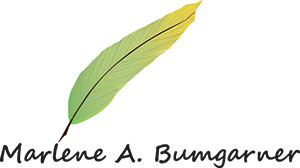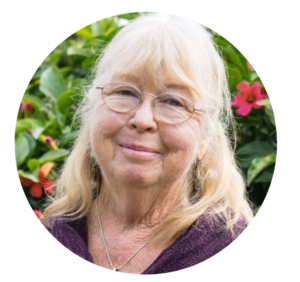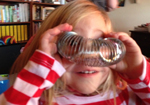This excerpt was originally published as a Work in Progress on this site in 2018, and I’m so happy to be able to say that it is now a full-fledged book! Back to the Land in Silicon Valley was published in July 2020, and is available everywhere books are sold. Buy it today on Bookshop or at your local indie bookstore.
Good Fences Make Good Neighbors
Marlene A. Bumgarner
Shortly after the Goat/Horse episode, Doña and I returned to Hawkins Lane one Friday night to find both horses grazing along the side of the road just inside our gate. I pulled into the drive next to the trailer and saw in the headlights that all my bedding plants, nurtured carefully from seed and nearly ready to transplant into the garden, had been chewed down to nubs. What remained of the vinyl greenhouse was in tatters, blowing loosely in the evening breeze. I could feel blood rushing to my face as I looked at the plants, and hot tears stung my eyes. Before I even took Doña out of her car seat I ran to the top of the rise and screamed “Go Home!” at the horses. I stomped my foot and yelled again – “Go home, you stupid horses!!!”
They looked up at me for a moment, then calmly returned to grazing. Clearly this was a battle I was not going to win. The horses were, quite literally, out of the barn, and they had no plans to go back in.
By the time we joined them on the land, our neighbor Quincy had returned the horses to Hawkins several times, each time pleading with the craggy old man to contain them more effectively so that we could get on with the development of our homes and gardens. I could see now that nothing had changed, and it wasn’t likely to any time soon. Bob Hawkins had our money and he was now closest neighbor, but we were pretty much powerless to make him keep his horses in their own space.
I mulled over the situation while I fixed my daughter’s dinner and prepared her for bed. My hands were still shaking. My rage at Hawkins and the horses seemed to be pushing me over a threshold. I realized that if I was this upset, I should do something about it, an unfamiliar thought for me. So far, I’d been the sleeping partner in this venture. I saw myself, and I suspect everyone else did also, as the baby nurturer and chief cook and gardener. Although we had spent every weekend camping on the land in our VW bus even before we moved into the trailer, I’d been letting Dorrie, Quincy, and John make all the major decisions and do most of the physical work. I kept myself busy caring for Doña, drawing sketches of the communal vegetable garden I was planning, baking bread and making hearty soups in a giant pot.
Dorrie had lived on a farm all her life and had skills and knowledge the rest of us needed to acquire. I had been quite happy to let her lead us as we began to plan and build out the footprint of our homestead. With the men’s assistance, she had already field-fenced a small goat corral and several larger areas on the hillside in preparation for the arrival of the rest of the animals. Goats, rabbits, chickens and ducks were being provided as a starter herd, a kind of housewarming gift, by her family. I assumed she would teach the rest of us what we needed to know to care for them when they arrived and was perfectly happy to let her do that.
While I nursed Doña to sleep, I thought about what I should do. I had watched others build fences and knew the process they had used to set the poles — dig holes with a post-hole digger, then hammer metal posts into the holes with a t-post driver, an enclosed cylinder with a handle on each side. Since it had been raining lately, but not in the last couple of days, the soil was fairly soft but not muddy. I decided it would make me feel better to dig some holes for a fence than trying to do my homework. I knew I would need help with unrolling the welded fencing — the 300-foot rolls were insanely heavy — but decided to start the project before someone, even myself, told me I couldn’t do it. Quincy and Dorrie were away — they had stayed in town to watch a movie. I was alone, it was dark, and it was probably foolhardy, but I knew where the tools were and where there was a stack of t-posts lying on the ground. Nothing was stopping me but my own fear of the dark, and that was being eclipsed by my anger. I unearthed John’s tape measure from underneath a stack of papers on the rocking chair, put our Aladdin lamp on top of the doghouse, and went to work.
I knew the stakes needed to be in a straight line, but I had no idea how far they should be apart. Wielding a flashlight, I made my way to the goat enclosure by the Adams’ school bus and measured the distance between the poles they had set — it seemed to vary between eight and ten feet depending on the slope and the angle of the wire. The Aladdin lamp hissed into the night. I was always nervous being alone after dark and the sound comforted me. John had stacked some 2 x 4s under the trailer in preparation for some project, so I took two of them and lay them end-to-end behind the doghouse. That looked about right and did actually measure just about eight feet. I raked back the grass and miners’ lettuce with a claw weeder, drew a circle in the soil at the ends of my wooden line, moved the 2 x 4s out of the way and began ramming the post hole digger into the ground inside one of the circles.
It looked pretty easy when John and Quincy did it, but I was a whole lot shorter than either of them and clearly not so strong. Whatever had possessed me to think I could do this? I retrieved a concrete block from where John had stacked them in preparation for building a floor in the storage shed and settled it into the ground. Standing on it, I was at a better angle. The post hole digger bounced several times before I got a purchase on the soil, and it took me 20 or so tries to get a hole that was deep enough to place a post into it with the little stabilizer fins below the soil. One post, and my hands already hurt. This was going to take a long time.
John’s work gloves were on a nearby worktable. I put them on. They were too big, of course, but I was able to get the next hole deep enough in only about 10 or 15 tries. I put the 2 x 4s back on the ground, clawed back another square, drew another circle, started a third hole. Now I was on a roll, and I was starting to enjoy myself. I imagined standing on the frame of a partially built geodesic dome, reaching into a carpenter’s apron for a handful of nails . . . house in the country, here we come!
By the time John drove up the road and around the corner, I had placed six posts and rammed them in so they stood up straight. I, however, couldn’t stand up straight to greet him, and my arms had gone numb.
“I saw the horses,” John said as he climbed out of the VW bus. He left the headlights on and walked over to me, hands on his hips.
“What the hell have you done to yourself?”
I stood in front of the last post I’d planted, the post driver still on it, my throbbing arms held out in front of me, his oversized gloves hanging off my blistered hands. I was holding back tears — and grinning broadly.
“I’m building a fence to keep those damned horses out of my garden!”



